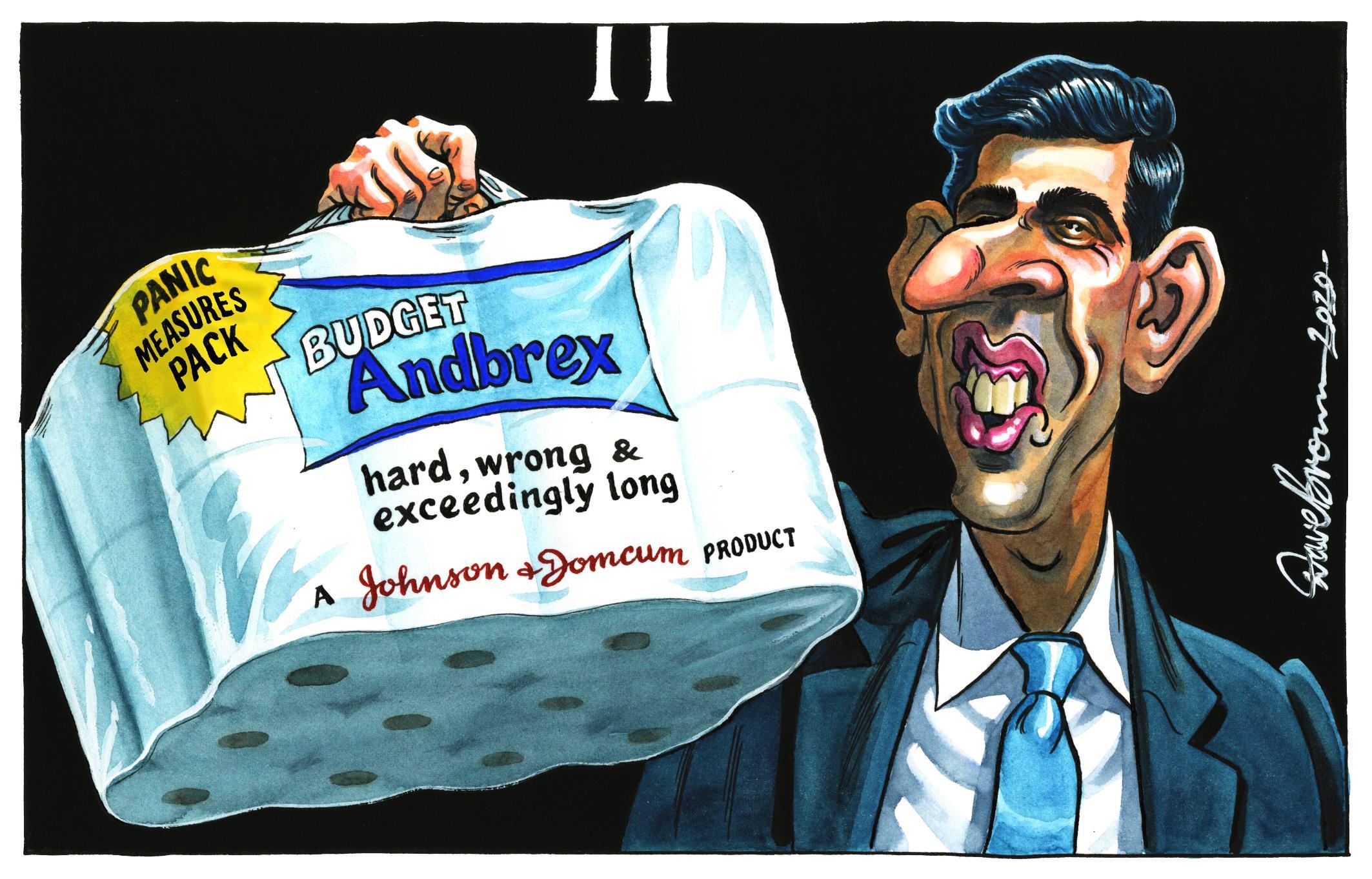Why Rishi Sunak’s Budget will define an era
The coronavirus crisis may provide the chancellor with an opportunity to change the rules of the game, writes James Moore


Today’s Budget looks set to be one of those era-defining ones in which there is a shift in both direction and tone. Comparisons could include Geoffrey Howe’s 1981 monetarist monster that saw spending cut and taxes hiked in the middle of a recession (unemployment surged as a result), or George Osborne ushering in austerity.
That needs to come to an end. The coronavirus is seen to have spoiled the party for Rishi Sunak, the new chancellor, or perhaps (more to the point) Boris Johnson and Dominic Cummings, whose fingers will be all over the big picture and the direction of travel.
But maybe not, because from crisis comes opportunity. There could scarcely be a better time than now to rewrite the government’s oft discussed fiscal rules, even to tear them up, if that’s what ministers want to do.
To have any chance of making a success of “levelling up” the regions, and limiting the negative impact of Brexit, they’re going to need to do something differently.
UK plc has been looking like a clapped-out old banger awaiting the inevitable scrappage scheme that will be needed to get petrol cars off the road over the next few decades, and that was before the emergence of the current crisis that has rocked the markets.
However, Oxford Economics’ lead UK economist Martin Beck says that “current conditions are unlikely to ever be bettered” if the government wanted to embark on an economic stimulus package to change that.
“Borrowing costs are the lowest in the 300-year history of the UK’s national debt, the chances of the Bank of England responding to a looser fiscal policy by hiking interest rates is minimal and the risk of economic disruption presented by coronavirus makes a fiscal response essential,” he says.
The question is to what extent Sunak, Johnson and Cummings – whomever has their hands on this particular tiller (and it isn’t completely clear) – are prepared to abandon the economic thinking that has dominated in Tory circles for a decade or more.
Sunak’s predecessor, Sajid Javid, wedded as he is to the Tories’ Thatcherite past, was probably going to tread a lot more carefully than his masters wanted, hence his departure.
With the PM having installed his own man to work under his thumb, the opportunity is there politically and economically, as Beck argues, to go a lot further.
It doesn’t hurt that the government’s lenders seem minded to cooperate too.
There are other economists who line up with the Institute for Fiscal Studies, which warned against an “unsustainable” debt-fuelled spending splurge.
And the Tory party’s election manifesto also pledged to balance the current account, so day-to-day spending is funded by tax revenues.
So to increase spending, Sunak would, in theory, need to find some revenue.
He won’t dare break the pledge not to raise income tax, or VAT, but ideas such as some variant on a mansion tax, abandoning entrepreneurs relief, which is creating something of a storm even though it benefits only a few thousand rich people, and raising fuel duty (which he ought to do) have all been floated.
The former two hit wealthy people, but with Johnson’s majority achieved through having breached Labour’s red wall, that might not matter as much as it did.
But the virus could serve easily as the catalyst that allows him to face them down. Catastrophes, and Covid-19 shaping up to be one, have a habit of changing the rules of the game.
And spending on things like health and education could easily be rebranded as investment. It should be.
There’s one other reason for Sunak to go for broke now that the conditions are there for him to do that. He will create a potential strategic problem for Labour’s new leader, something that will probably appeal to his boss.
Join our commenting forum
Join thought-provoking conversations, follow other Independent readers and see their replies
Comments